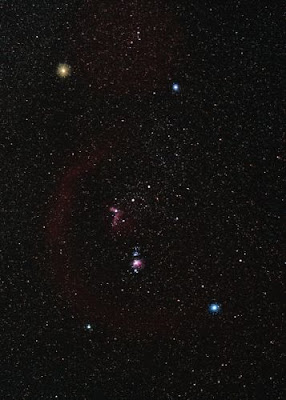 My grandmother was born in 1901 and lived until 1993. Hers is a generation I have long admired not merely because of their propensity for long lives despite every warning and retraction from the Surgeon General on what is and is not healthy. Look at those years again - from 1901 to 1993. Now consider everything they have witnessed regarding the advance of technology and compare it to the developments of only the last 20 years.
My grandmother was born in 1901 and lived until 1993. Hers is a generation I have long admired not merely because of their propensity for long lives despite every warning and retraction from the Surgeon General on what is and is not healthy. Look at those years again - from 1901 to 1993. Now consider everything they have witnessed regarding the advance of technology and compare it to the developments of only the last 20 years. There's no comparison.
By 1917 the United States was embroiled in the First World War with the Second, Korea, Vietnam, Grenada and Desert Storm to come. The car and the airplane had been invented and were in mass production by then. The telephone had been around since at least 1876 but television wouldn't come to the party for another 12 years. Try to imagine the social changes realized over such a lifetime or heck, just within the 60s! Pick the evolution of any of those over a lifespan of 90 years and then simply stand back in awe and wonder if such a concentrated era of invention and enlightenment will come again. More to the point, when? What is left?
Recently while in Los Angeles on business I took a friend on a quick tour of the area which included time in the early evening at the Griffith Observatory overlooking the Greater Los Angeles Basin. The view was spectacular as there was a surprisingly clear evening sky above the City of Angels. Probably the most impressive exhibit displayed the size, lifespan and heat ratio of the Sun compared to other stars in the galaxy. Betelgeuse, the yellowish star in the upper left corner of the constellation Orion, pictured here, was the largest orb in the exhibit yet there was a caption that said if it were scaled properly it would be one and a half times the size of the room we were standing in while all others were exactly the scale they should be. Gaack!
Whether or not there is life beyond our planet, WHEN will space travel become available to the masses, as ordinary a routine in daily living as taking the bus? We fret and worry over each shuttle launch, as concerned with weather reports and tarot card readings every time a shingle shakes loose. And other than launching yet another eavesdropping, GPS navigating or phone switching satellite the gamut of experiments still run in the "What is it like to peel an orange in a weightless environment" variety.
Routine travel needs a destination so that means a colony on the moon or nearby planet has to happen in order for space travel to be more than just once around the park. All that is well and good, I'm only asking when. And for something other than reducing the flying to time Australia. I'm talking about going in to space, traveling through outer space and arriving somewhere else in space, somewhere other than Earth.
"Honeeeeey, I'm going to Mars for a conference." "Bring something back for the kids!"
I was born in the age of jet travel. Planes have gotten bigger and made to fly farther but they don't travel any faster. My generation has witnessed the digital age, from CDs to cell phones, cable and imaging technology (cameras). It's allowed us to compress time and information while increasing our productivity yet across the planet we remain at the mercy of fossil fuels and the internal combustion engine. Huh?
Even if it is at the end of my lifetime, which seems more and more likely, I'd like to be able to book a ticket to the moon just for the sake of going, the same as I would hop a flight to New York for no other reason than dinner and a show.
And if the Vulcans happen to pass by and stumble across our warp signature, well that's perfectly fine with me, too.
Gotta go!
No comments:
Post a Comment